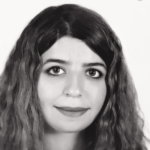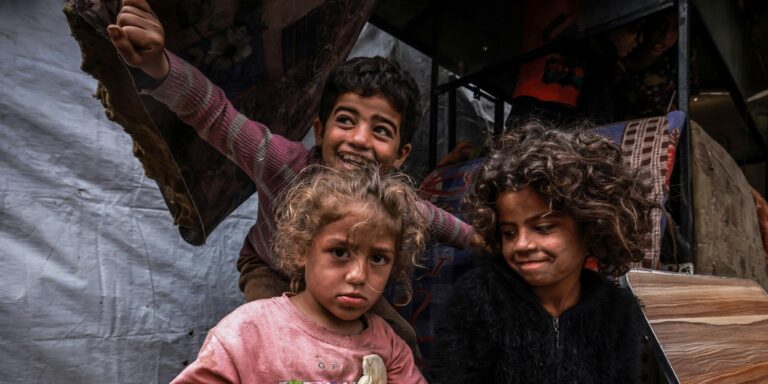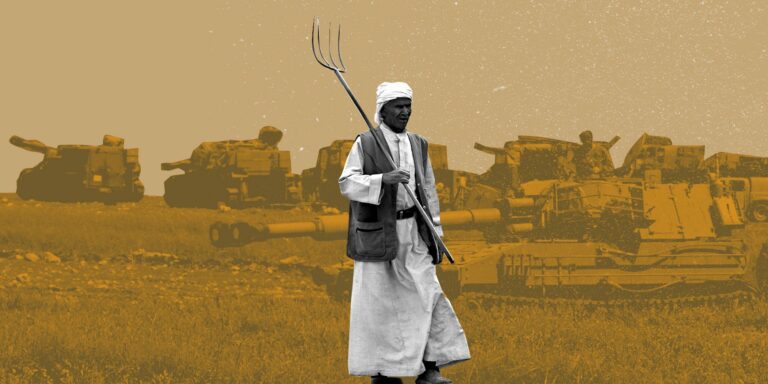Syrian workers number an estimated third of the Beirut blast’s victims. There is no confirmed number of the ones missing. The Syrian embassy in early August announced there were 43 Syrians among the victims of the blast, yet added the death toll was not final.
“It’s everyone’s right to be buried in a cemetery, which is not supposed to be expensive,” said Rima Mesto with a trembling voice. “What is more precious than our blood? While we were grieving over Rawan’s death, we also had to worry about the graveyard in which her body was to rest in peace.”
Rima’s sister Rawan was killed in the Beirut port explosion on August 4. The crime occurred in the Lebanese capital, yet the echoes of death resonated throughout Syria, whose people have long sought refuge in Lebanon to study, work or escape the atrocities of war.
Rawan was born in Beirut 22 years ago. Her mother was a Syrian journalist, who used to serve coffee at funerals to make some extra money to support her family. When she fell sick and was no longer able to work, Rawan became the main breadwinner in the family of four, especially when Rima lost her job due to Lebanon’s tightening restrictions on the employment of Syrians.
Rawan was well known in Beirut. She was known by its streets, its stray cats and its beaches, where she participated in clean-up campaigns. And by the Serrano Café in Mar Mikhael, where she spent the last two years of her life working as a part-time waitress. She was planning to go to film school next year, yet passed away before she even had the chance to apply.
About an hour before the explosion, Rawan said goodbye to her family and went to work. When Rima heard the explosion, she thought it was in Mar Mikhael, and the start of another war. Within no time, she was running to the Serrano Café. On her way, she met a colleague of her sister who said: ”Rawan will not make it.” When Rima reached the café two other colleagues of her sister told her that Rawan was fine, but that she had passed out in a state of shock. Rima went to the Roum hospital, but could not find her. “Then I went to Geitawi Hospital, where the doctors were trying to revive a girl who looked like my sister,” Rima told Daraj. “I thought it was her. But when I approached her, I noticed the logo on her jacket wasn’t that of Serrano. So, I continued looking for her in other hospitals.” “The next day, at 7 in the morning, we received a call from the Rizk Hospital,” Rima continued. “I went there with my fiancé and entered the mortuary. My heart was beating frantically. I just felt that her body was lying there. I went closer and there she was, my beloved Rawan.”
Being a foreigner in Lebanon means you will suffer even after you die. As is the case for Rawan, who was born in Beirut, yet denied the right to be buried there. Cemeteries available to foreigners are remote and temporary: Rawan is allowed to be buried for a maximum of two years, after which she must be transferred elsewhere.
When Rawan’s friends found out, they refused her to be buried like her mother in a foreigners’ graveyard. They wanted her to rest close to her family. Yet, this wish proved very expensive. Rawan could only be buried in Beirut if the family paid $11,000. A price too high to pay for a family that, due to the explosion. had already lost their home between Sin el Fil and Nabaa in the east of Beirut, and had greatly suffered to have Rowan’s death certificate issued. Fortunately, after a long and tiring effort, a benefactor was found willing to pay for the burial.
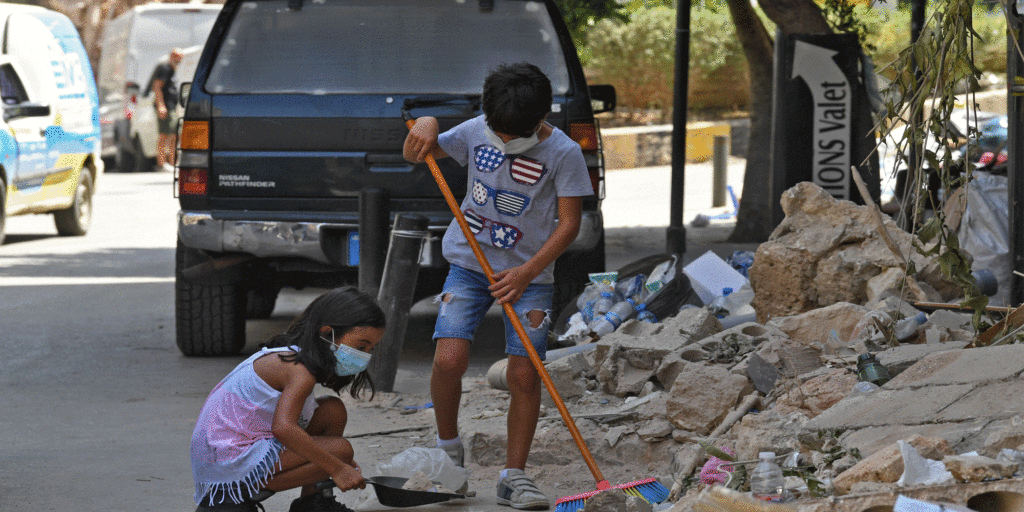
No roses or saffron on Azam’s tomb, only dust
“Where is dad? Is he upset with me?” Qamar (4) asked over and over again, as her dad for the first time in her life had stopped calling her. Mohammed, her brother, decided to tell her a story, a story about angels who ascend to heaven and her father who had become a star in the Beirut sky.
Until that day Qamar had spent most of her days at her neighbor’s house in the Syrian city of Hama, where her father, Azam Yahia Hamua, some 35 years ago packed his bag and headed to Beirut. There, he worked in the port’s mechanical department. On August 4, a friend had invited him to come for dinner, but he had preferred to lie down and get some rest. That is when the port exploded.
Over the years the 55-year-old had witnessed lots of calamities in the port, yet he never stopped working, not even during the 2006 July War. His worst agony was being away from his family. Azam lived in misery. One of his friends described him as “the most impoverished man.” Lebanon’s economic crisis had badly affected his livelihood. The company he worked for had reduced his salary to 600,ooo Lebanese pounds (LBP) for unspecified working hours. However, being the breadwinner for a family of eight, Azam had no choice but to accept.
“My father’s death certificate cost more than the wage he earned to support us,” Azam’s eldest son Mohammed told Daraj. The 23-year-old went on to explain how his father’s body was transported to the Syria border in a friend’s car, as Lebanon’s health authorities and associations refused to transport it by ambulance. Until now there is no death certificate, as the hospital ask for $300, while the family hardly has money to buy bread.
“Until today there are no roses or saffron on Azam’s tomb, only dust,” he continued. “We are still waiting for the death certificate to be able to put a tombstone and carve his name.
“To get my father’s body back into Syria wasn’t easy either,” Mohammed said. “We appealed to many authorities to obtain a permit allowing us to take him out of Lebanon. Finally, my father’s friends collected 900,000 LBP to pay for an injection to preserve his body and a taxi to transport it home. Thank God, it stayed in one piece. My father was a very good man in life, yet he died being treated very unfairly.”
“Until today there are no roses or saffron on Azam’s tomb, only dust,” he continued. “We are still waiting for the death certificate to be able to put a tombstone and carve his name. Meanwhile, we can no longer make ends meet. We lost our father and breadwinner. I am jobless and the only son among five sisters. I have a huge responsibility to carry, yet no clue how to deal with it. How can we keep our heads above the water?”
“My father’s life and last moments remain in Beirut,” he said. “In Beirut remains my father’s blood, for which we would have sacrificed our souls. To all the innocent souls that departed our world: may you rest in peace with our father.” Azam is dead. And with him dozens of other foreign workers. Will anyone compensate their families?
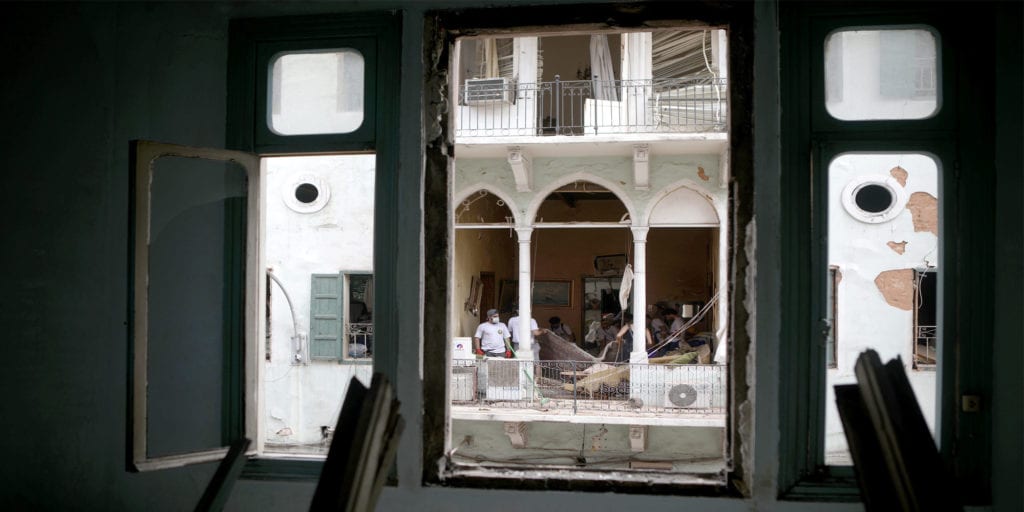

The Missing Anchor Tattoo
Following the Beirut port explosion no sound was louder than the sound of loss. The families of those missing just stood there crying out for a glimmer of hope. Someone asked a civil defense worker to lend him a shovel and help him remove the rubble. A woman cried for her missing brother in the hope he might answer.
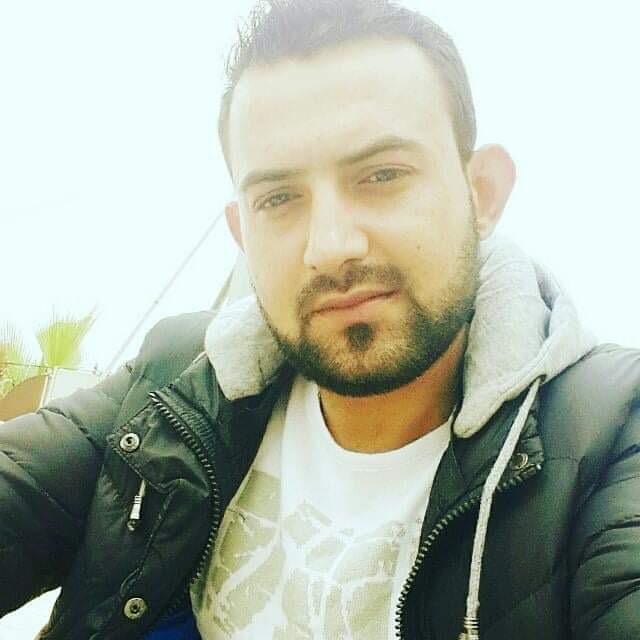

Others had already given up hope to ever see their loved ones again and returned home. Syrian workers number an estimated third of the Beirut blast’s victims. There is no confirmed number of the ones missing. The Syrian embassy in early August announced there were 43 Syrians among the victims of the blast, yet added the death toll was not final.
“There was a tattoo of a sea anchor on his right hand,” said Bassam, brother-in-law of the missing Mustafa Ayrout. “He had a handsome dark-skinned face. Describing what he was wearing doesn’t help much, as we were told that Mustafa stood very near the fire.” Ayrout (28) had been working on the Abu Marei ship for eight months. A sailor from Baniyas in the Syrian governorate of Tartous, he worked in the ship’s maintenance department. He had no fixed workplace as he traveled on the Abu-Marei from one country to another. His work was the reason he had not seen his wife and child in Syria for about a year.
“It is as if he paid a price for his freedom”
Two hours before the explosion, Mustafa had called his sister. They had talked and laughed. He had promised they would meet the following day. They never would.
Mustafa was the only one among the ship’s staff allowed to stand at the ship’s berth, as he was the only one with a Lebanese residency permit. It was here he was last seen before the fire erupted. All the workers who were not allowed to leave the ship survived. Only Mustafa went missing.
“It is as if he paid a price for his freedom,” said Bassam who, going from one hospital to the next, was the only one looking for his brother in law. “In the last two days, the rescue teams only found human remains,” Bassam said. “I gave up hope. Mustafa’s family was not ready to accept his loss. They believed he was injured somewhere. They clung onto the hope he was still alive. But I alone saw the human remains every day. And I alone had given up hope.”

